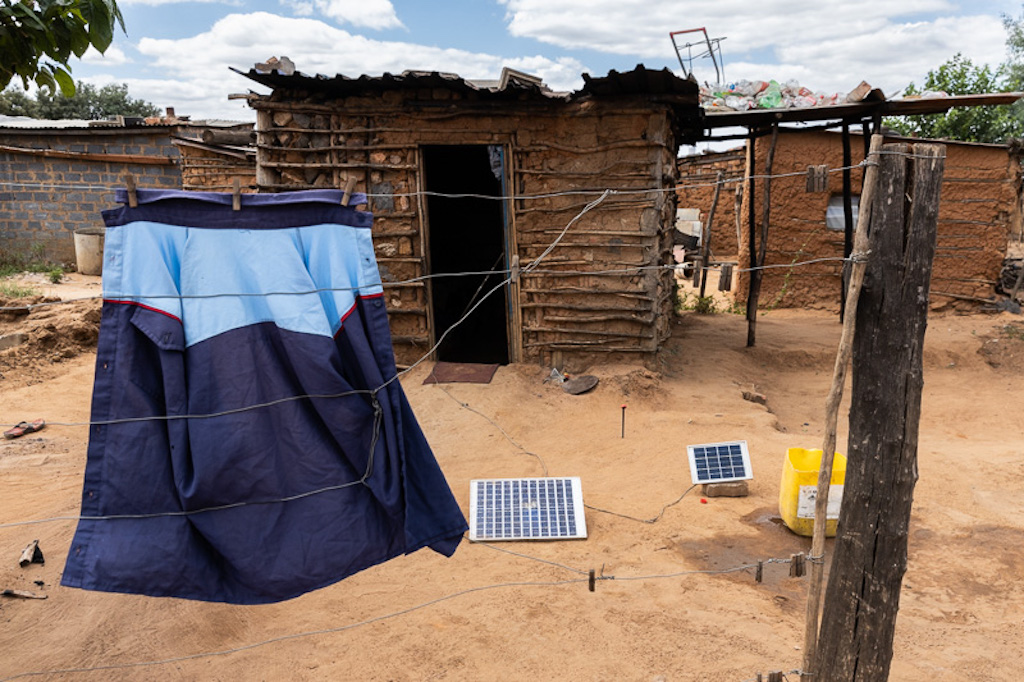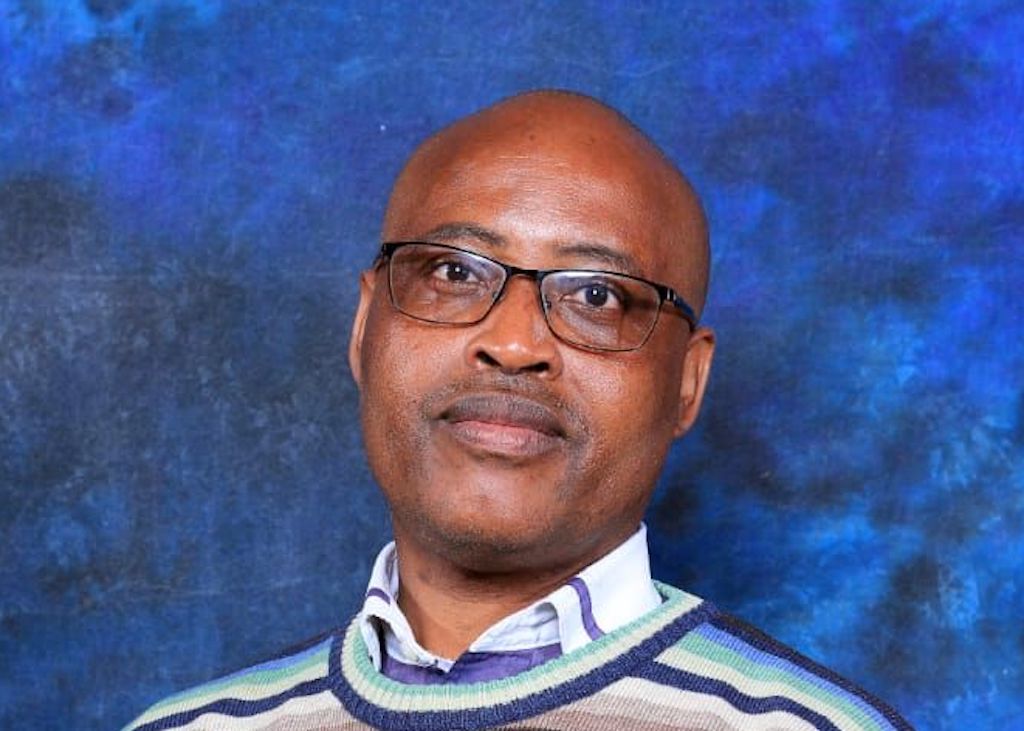
29 Nov Are municipalities good for JET money?
Financing for the Just Energy Transition is increasing, but is being undermined by indebted municipalities in Mpumalanga that are not bankable. Thabo Molelekwa investigates

Path-finders: The state of finances in Mpumalanga municipalities will take centre stage in shaping the path of the Just Energy Transition. Photo: Ashraf Hendricks
Municipalities in South Africa’s energy capital are not in a position to attract financial investments to support their transition to renewable energy, research shows.
Three of Mpumalanga’s 17 local municipalities – Emalahleni, Msukaligwa and Steve Tshwete – are most affected by the Just Energy Transition (JET) because they house coal mines and Eskom coal-fired power stations. The state of their finances will take centre stage in shaping the path of the transition.
Although additional funds for South Africa’s energy transition are expected to be raised at the global COP28 climate change conference, taking place from November 30 to December 12 in Dubai, there are obstacles to the funding reaching municipalities in Mpumalanga.
A recent report by financial services consultants Krutham, titled JET issues in Public Finance – which focuses on mobilising JET funding for Mpumalanga – suggests these municipalities may have difficulty attracting investments for the transition.
The Krutham research highlights that the challenge for municipalities is not to try to replace coal plant jobs with renewable energy jobs but to attract investment for land identified for future economic zone development, and to take advantage of the skilled or semi-skilled labour force that will become available.
Speaking to Oxpeckers, Jana van Deventer, the lead author of the Krutham report, explained that it focuses specifically on energy transition issues in public finance, and has a strong focus on not just national government but also on provincial and municipal governments.
According to Van Deventer, any funding for the energy transition that is earmarked at national level and put aside by the National Treasury would have to flow through provincial and municipal governments.
Earlier this month, the government confirmed the approval of the JET implementation plan by Cabinet and the signing of three new concessional loan agreements – worth more than $1.8-billion – in support of the JET investment plan. The new loans have been provided directly to Treasury for general budget expenditure purposes by the World Bank, Germany’s Kreditanstalt für Wiederaufbau (KfW), and the African Development Bank (AfDB).
“What the research found is that many of the municipalities based in the areas that will be most affected by the transition are in a dire financial situation,” said Van Deventer. “They have not been receiving clean audits from the auditor general.
“Because of the poor financial position of these municipalities, it will be very difficult for them to fulfil the role of channelling funding that is intended for the just transition, not only from a transitioning perspective but also in terms of how new industries and community development can be done.
“So these local municipalities are basically just not bankable, which means they are not feasible for any funding from different sources of financing,” Van Deventer said.
Municipal debts
The Auditor-General’s report shows that in the 2020/21 financial year Steve Tshwete Local Municipality had unauthorised spending of R107-million and just under R500,000 in irregular spending. Emalahleni had R444-million of unauthorised spending and R618-million of irregular spending.
When asked about these irregularities and whether they will affect the municipality in terms of the JET, Leah Mabuza, the executive mayor of Emalahleni, said cash flows are a determining factor for future service delivery plans.
“In the case of Emalahleni Local Municipality, we are working hard to ensure that we have adequate cash reserves to meet future service delivery plans. On a regular basis, the municipality saves money through reduced spending and saving cash from collections.”
According to Mabuza, the municipality has a plan to ensure measures are put in place towards a credible budget that is fully funded, does not have budget overruns, and also ensures that revenue due to the municipality is collected. However, she said all of this depends on the ratepayers honouring their monthly accounts.
This is why, she said, under the slogan “Pay your municipal account and demand quality, prompt services”, the municipality urges Emalahleni residents to pay their utility bills and other fees imposed by the municipality in order to receive timely, high-quality services.
She explained that the municipality has positioned itself to achieve clean administration through financial prudence, and carefully managing the available funds effectively and efficiently.
“We have the institutional arrangements and control mechanisms to improve the way we do business with efficiency and accountability in the expenditure of municipal funds. [But] there are challenges we face as an institution, such as the rising Eskom debts,” she added.
Mabuza said the municipality has taken advantage of provincial and national government support through various programmes, such as the Financial Recovery Plan, the Municipal Audit Support Plan and a municipal debt relief plan offered by Treasury. “We are confident that our state of finances is gradually improving, and thus our bankability,” she said.

Leah Mabuza, executive mayor of Emalahleni: ‘We are confident that our state of finances is gradually improving, and thus our bankability.’ Photo supplied
Steve Tshwete
George Mapheto, finance officer at the Steve Tshwete Local Municipality, told Oxpeckers that according to its current municipal balance sheet, the municipality is doing well as it is able to service its debt when comparing current assets against current liabilities.
“The only challenge is that, at the moment, we’ve got long-term liabilities. In short, I can say we are almost over-indebted. There are some loans that we need to fix,” said Mapheto, estimating that these loans are around R800-million or R900-million.
However, Mapheto insisted that it would not be fair to say the municipality is not ready or will not be able to attract investments judging from its current financial state because “the transition is something that might happen in 10 years’ time and by then, you would find that the liabilities would have been paid.
“Attracting investments for the transition will also depend on how we are going to be able to now make sure we improve our financial position in terms of current assets, like the collection of outstanding debts, and also other revenue sources,” he said.

Spokesperson Mandla Zwane: Msukaligwa Local Municipality is planning to approach development funders. Photo supplied
Msukaligwa
Msukaligwa Local Municipality, another municipality that is to be heavily affected by the JET, was also found not to be in a position to attract investment by the Krutham report.
The municipality acknowledged that it does have financial issues that will impact the JET pathway; however, it is contemplating a limited number of investment opportunities.
“Our municipality is currently not doing well or as expected in terms of revenue generation and has been classified as one of the municipalities in the province that is financially stressed and that may negatively impact our participation in the Just Energy Transition,” said Mandla Zwane, the spokesperson of Msukaligwa Local Municipality.
He told Oxpeckers the municipality is planning to approach development funders such as the Development Bank of Southern Africa, the Industrial Development Corporation, the Government Employees Pension Fund / Public Investment Corporation, and multilateral institutions such as the United Nations, European Union, German development agency GIZ, World Bank, European Investment Bank and USAID for grants and/or loans in order to facilitate the transition in the municipality.

Komati power station in Steve Tshwete: Mpumalanga’s municipalities are most affected by the JET because they house coal mines and Eskom coal-fired power stations. Photo: Dianah Chiyangwa
Funder engagement
The International Partners Group, a group of international funders supporting the JET to the tune of $9.3-billion, recognises the importance of engaging with municipalities and communities and working with them to deliver projects on the ground in a timely manner, according to a recent statement by the European Union.
The IPG is “undertaking extensive work to improve municipal capacity to invest in and plan for renewable energy power projects and increase electricity access, in particular for the most vulnerable, while also working on demand side management initiatives, and considering options for social ownership models,” the statement said.
Tracy Ledger of the Public Affairs Research Institute said the entire local government’s fiscal framework is unsustainable because municipalities are required to raise 90% of their revenue from rates and taxes, water and electricity sales to the local community.
Ledger said securing a successful energy transition in South Africa is going to require a lot of investment in infrastructure funding: “There’s a lot of investment that needs to go into municipalities to catch up on the maintenance backlog,” she said.
“There are 165 municipalities across the country that are doing electricity distribution. In almost all those municipalities, what has happened is that over the past 25 years there has been a big increase in demand for electricity. There has been an expansion of the electricity network. But we haven’t seen municipalities’ ability to keep up with the maintenance of the infrastructure. So a lot of that infrastructure has fallen into disrepair,” she said.
“It doesn’t help if we have all this renewable energy that comes on to the grid, but because the distribution grid is collapsed, it can’t actually get to people’s homes or people’s businesses.”

Thalente Ndebele, Mpumalanga provincial coordinator of the ANC Youth League: ‘A municipality such as Emalahleni needs to demonstrate open and accountable financial management.’ Photo: Thabo Molelekwa
Third sphere
Thalente Ndebele, Mpumalanga provincial coordinator of the ANC Youth League, told Oxpeckers it is unfortunate that the municipalities, which form the third sphere of government and are closest to the people on the ground, “are failing to deliver the mandate of serving their people”.
“I have already started engaging with the municipal officials. One of the members of the mayoral committee has mentioned that they’ve developed an action plan to address all the issues they’re facing,” Ndebele said
He said that they are pushing to make changes in the financial situation of Emalahleni, but the process is complex because it requires a combination of short-term and long-term interventions.
“A municipality such as Emalahleni needs to demonstrate open and accountable financial management in order to attract investments for the energy transition and make investors trust that the municipality has the ability to handle finances,” Ndebele said.
Thabo Molelekwa is an associate journalist of Oxpeckers Investigative Environmental Journalism, and a graduate of our #PowerTracker professional support and training programme. This investigation was supported by the African Climate Foundation’s New Economy Campaigns Hub
